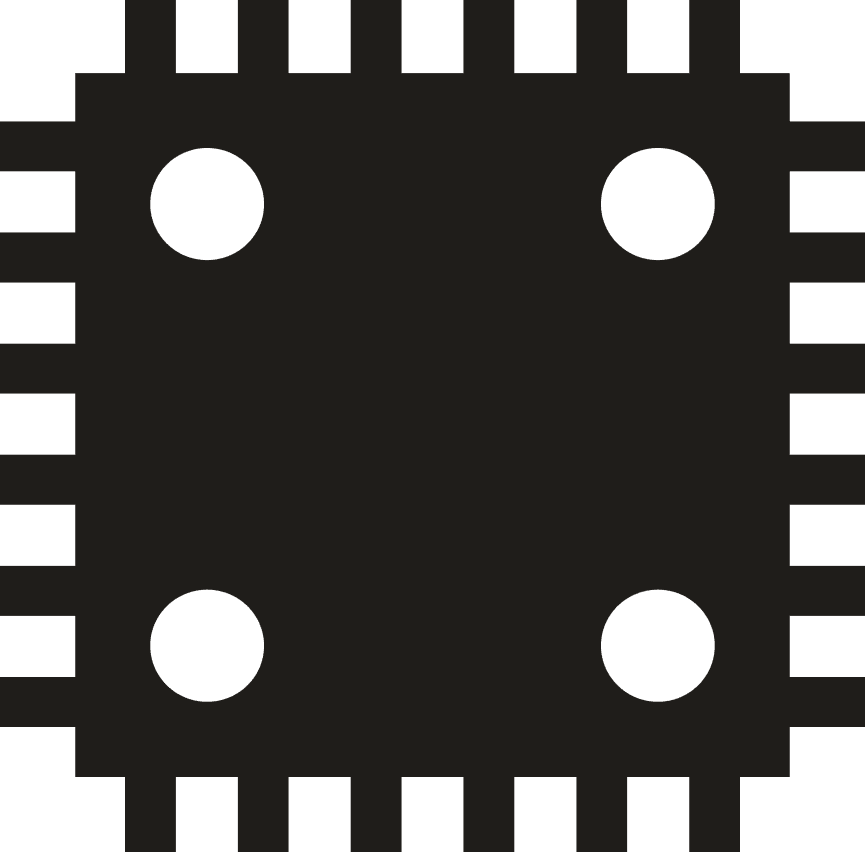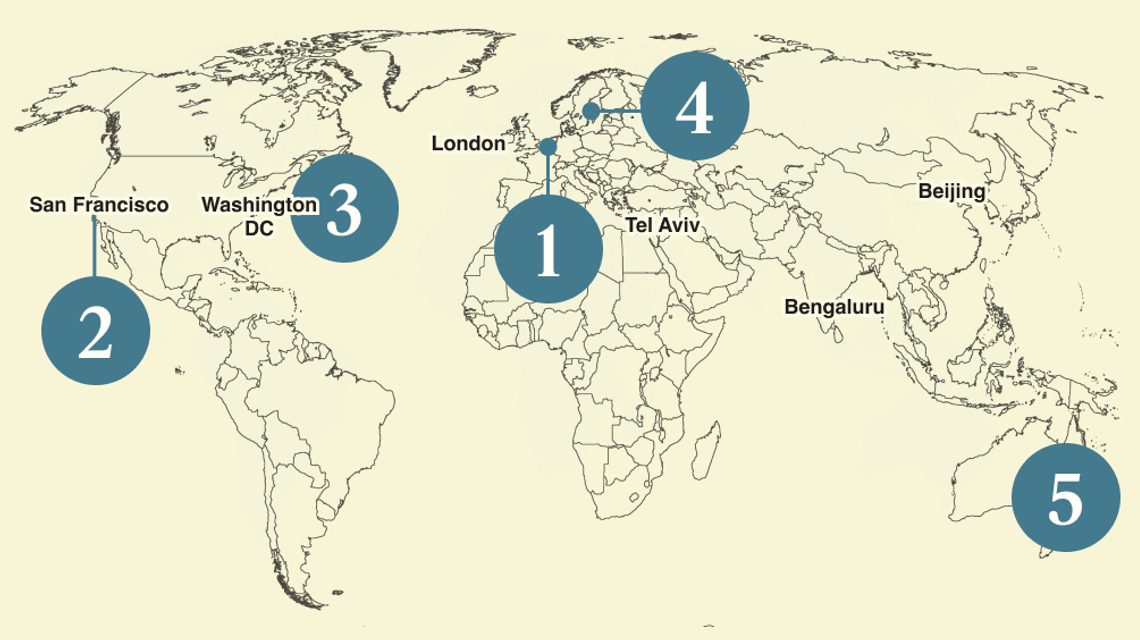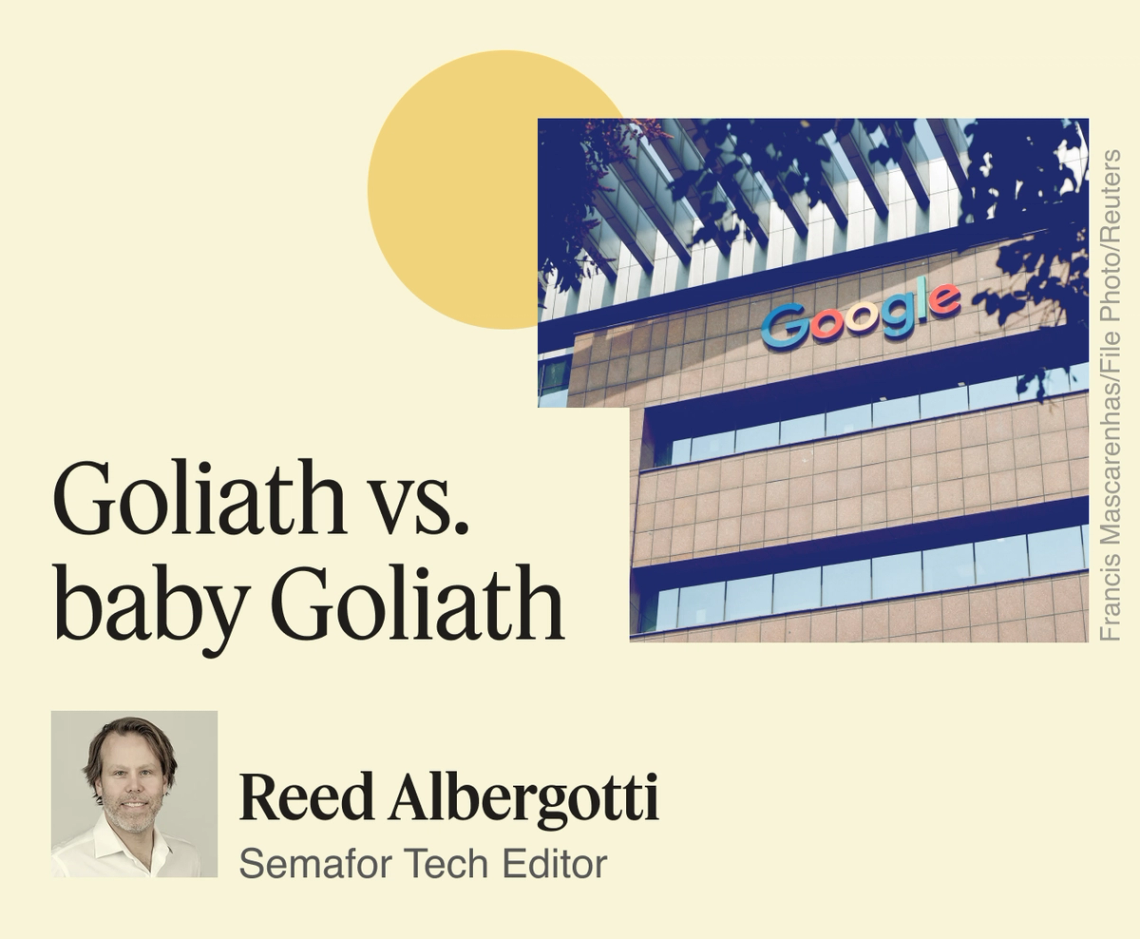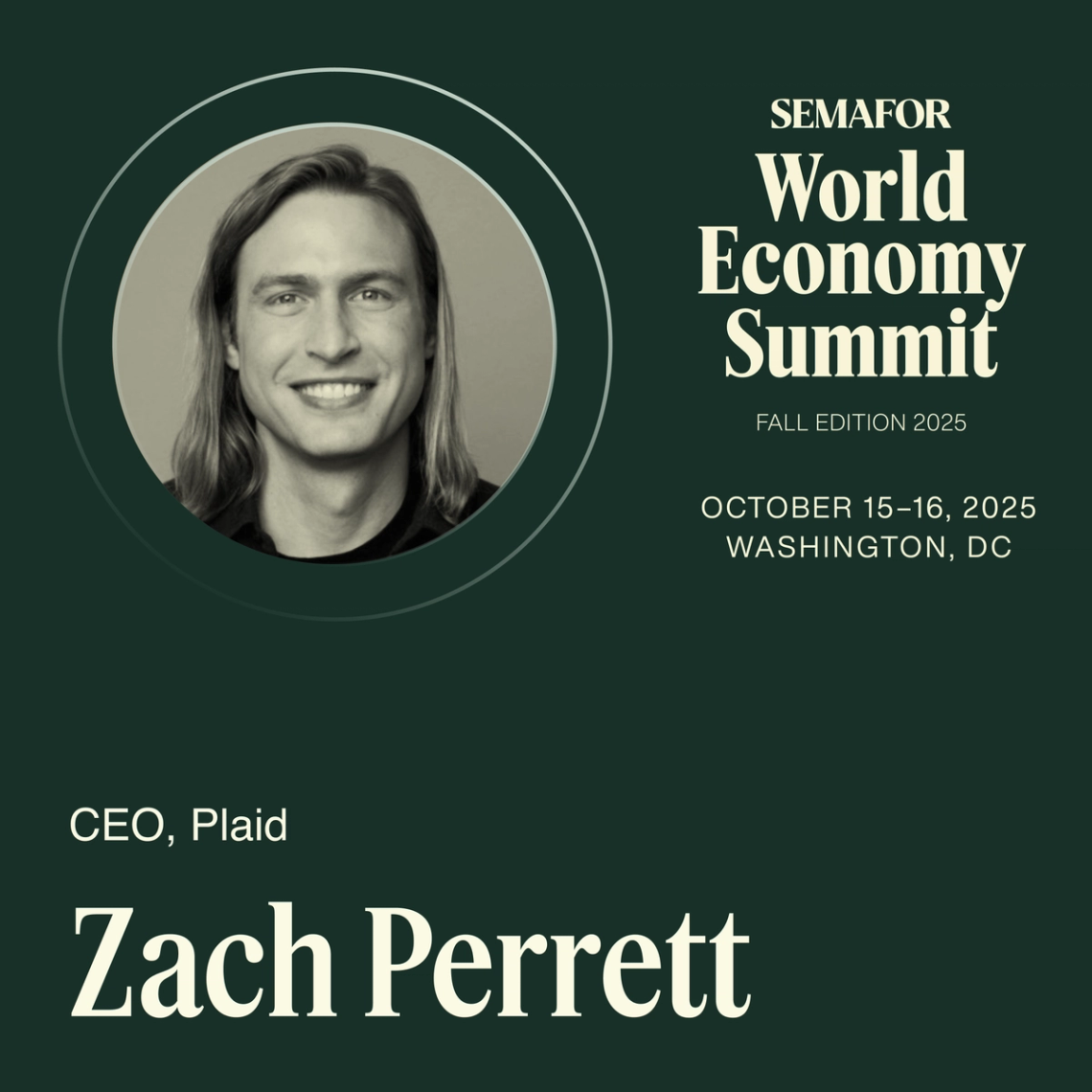| | In this edition, how OpenAI is preparing to face its toughest competitor: Google. And Deloitte exper͏ ͏ ͏ ͏ ͏ ͏ |
| |  | Technology |  |
| |
|
 - Europe ramps up AI
- OpenAI’s chatbot challenge
- Intel’s new CEO allies
- A quantum leap to Nobel
- Deloitte’s costly AI faux pas
 Why Google has such an advantage in AI, and a potential breakthrough in treating cancer more effectively. |
|
 There’s been a lot of discussion lately about how to look at OpenAI, whose outsized ambitions have been on display, from its blockbuster deals with chipmakers to its AI-powered social networking app to its new products announced this week. Here’s what this tells me: It’s a juggernaut on a collision course with its nemesis, Google. This may not be today’s headline, but Google is OpenAI’s biggest potential long-term threat, and some of OpenAI’s strategic moves seem to address that reality. It can’t be understated how much of a head start Google has in AI. It was thinking about custom AI chips in 2006. It was buying tens of thousands of Nvidia GPUs in 2014, deployed its own “Tensor Processing Units” by 2015 and invented the architecture that powers ChatGPT in 2017. That’s a big reason Google is able to run its AI models so efficiently, rolling out AI-powered products to billions of users when there’s a huge shortage of available compute. In the AI era, advertising won’t be the only consumer business model on the internet. If subscriptions and fees become the norm, companies will be able to use pricing power as a competitive advantage. OpenAI can burn billions of dollars per year today. Eventually, it needs to make more money per user than it spends. Google and OpenAI are alone in the fact that they have both industry-leading AI capabilities and mass consumer distribution. But OpenAI is missing its own customized compute infrastructure. So I’m spending less time thinking about whether OpenAI wants to be Windows, or Facebook. The next era of tech will be about who makes general-purpose AI software that consumers want, and who is able to do it profitably. |
|
Europe’s AI adoption plan |
 Remo Casilli/Reuters Remo Casilli/ReutersThe EU is positioning itself to boost AI adoption — and invest in European research, frontier models, and agents — as the bloc seeks to reduce its reliance on foreign technologies and catch up with the industry-leading US and China.The European Commission announced Wednesday that it will spend €1 billion ($1.17 billion) on its two-pronged strategy to drive local AI research and implement new technologies across public and private sectors. “External dependencies of the AI stack that can be weaponized, and thereby increasing risks to supply chains by state and non-state actors, make it crucial for the European Union to step up its efforts,” one of the strategies said, according to The Wall Street Journal. Meanwhile, US-based Anthropic is expanding its reach in Asia, announcing a new office in India, the second-highest global Claude user behind the US. The office — staffed with local AI talent — will partner with Indian entities and deploy AI in education, health care, and agriculture sectors. |
|
Chatbots still need human fine-tuning |
| |  | Reed Albergotti |
| |
 Courtesy of OpenAI Courtesy of OpenAIOpenAI may be drifting apart from Microsoft, but it has one thing in common with the maker of Windows and Office: it’s all about developers. And that puts it on a collision course with Apple. On Monday, OpenAI unveiled a new way companies can integrate with ChatGPT, making it possible to, say, book tickets through Expedia without ever leaving the chatbot app. Hidden behind the announcement is a tacit admission: While AI models can do amazing things, they aren’t good enough to handle those actions unsupervised. I experienced this recently when I used Perplexity’s Comet browser to figure out how to sign up for the airport lounge program Priority Pass, which I knew was buried somewhere deep inside a credit card website. Comet figured it out in one try and signed me up in a couple of minutes. I later found out it had entered a random phone number instead of mine, made up my place of birth in the security questions, and forgot which email address it used. The chatbot experience can still be magical for users — it is just going to take a lot of manual, human labor to get there. If OpenAI can convince developers and companies to zero in on fine-tuning very specific capabilities, it will attract more users to the service, which will in turn attract more developers, creating the kind of flywheel that makes platforms successful and difficult to compete with. Once OpenAI has enough of these app integrations inside its service, ChatGPT could be like a super app. There’s a problem, though, on mobile. Apple strictly limits the capabilities apps are allowed to have on its phones. Any purchase of digital goods would run afoul of the iPhone maker’s payment system. And Apple could consider these app integrations “apps within an app,” which it doesn’t allow. If OpenAI is successful with its developer strategy, it will need a successful hardware strategy, too. And that’s why it’s bringing on ex-Apple designer Jony Ive — to beat the iPhone maker at its own game. The device can’t just be beautiful. It has to be so powerful that it essentially replaces the need for a phone altogether. |
|
The tech CEOs who helped save Intel |
 Laure Andrillon/Reuters Laure Andrillon/ReutersWhen Intel CEO Lip-Bu Tan’s back was against the wall, some of America’s most powerful chief executives stepped up to vouch for him, Semafor’s Rohan Goswami and Liz Hoffman reported. Microsoft’s Satya Nadella, Nvidia’s Jensen Huang, and tech founder Michael Dell were among the executives who reached out to President Donald Trump or his top aides to talk up Tan’s credentials and patriotism after the president publicly called for him to be fired, according to people familiar with the matter. The conversations, which came ahead of Tan’s Aug. 11 meeting with Trump at the White House, appear to have helped soften the criticisms and win Tan a presidential seal of approval. Trump, who had called Tan “highly conflicted” because of his previous investments in Chinese tech companies with military ties, subsequently praised his “amazing story.” The government soon announced it was taking a 10% stake in Intel, which catalyzed a series of private-sector investments, including from Nvidia. Microsoft declined to comment on “any private communications.” A spokesperson for Intel declined to comment. Spokespeople for Dell and Nvidia did not return multiple requests for comment. “President Trump and the Administration are in regular contact with business leaders,” White House spokesman Kush Desai said. “The only factor guiding President Trump’s decision-making, however, is the best interest of the American people.” |
|
Researchers’ quantum leap findings win Nobel Prize |
 Tom Little/Reuters Tom Little/ReutersGoogle employees might want to keep their phones on the nightstands with the ringer on this time of year, lest they get an important call from Sweden. Michel Devoret, chief scientist for quantum hardware at the company, slept right through a flurry of phone calls Monday night. When he awoke, he thought the text messages telling him he’d won the Nobel Prize in physics were jokes, according to a Google spokeswoman. Then he talked to his daughter in Paris, who confirmed that he had, indeed, received the honor for his work that helped prove quantum computers are possible. The breakthrough that won Devoret the top physics prize happened while at the University of California at Berkeley between 1984 and 1985. But his work isn’t purely academic anymore. Google hopes to build the world’s first large quantum computer capable of doing math problems in a few seconds that are so large they couldn’t be solved by all the world’s computers combined between now and the end of the universe. Devoret received the award with John Martinis and John Clarke. Martinis previously led quantum hardware for Google. It’s the third Nobel Prize that has gone to current or former Google employees in two years. The prize for quantum could be seen as a vote of confidence or encouragement from the Nobel committee, and also a reflection of some of the breakthroughs that have built on the early work of the three recipients. There is still a high level of skepticism that an “at-scale” quantum computer is possible. But if it is achieved, it could upend science as we know it, leading to rapid-fire breakthroughs in fields like materials science and medicine. |
|
Deloitte’s AI slip-up reveals bigger threat to consultants |
Ahem. Deloitte’s Australian branch will issue the government a partial refund worth 440,000 Australian dollars ($290,000) after AI-generated errors were reportedly discovered in a paper it compiled for the client on an agency website. The 237-page document on automatic penalties in the country’s welfare system included a made-up quote from a court judgement and references to non-existent academic publications. That incorrect information has been removed from the updated report, which now also includes a disclosure that Deloitte used Azure OpenAI to help write it. The mishap comes as advancing AI systems put pressure on consultancies. The technology is increasingly able to perform data analysis and provide expert recommendations that firms thrive on, but their use of AI risks shrinking the perceived value of their work. Major consulting firms have laid off roughly 50,000 workers since the start of 2023, due to a post-pandemic slowdown, AI, and more recently, a rollback of government spending.  |
|
 Plaid CEO Zach Perrett will join the stage at the Fall Edition of Semafor’s World Economy Summit. Hosted in the Gallup Great Hall and spanning eight sessions over two days, the summit will feature on-the-record interviews on the state of global growth and finance, AI advancements, powering global energy needs, and the forces reshaping the world economy. Each session brings together the leaders and forces most directly shaping the global economy, with programming powered by Semafor’s world-class editorial and executive leadership. Oct. 15 & 16, 2025 | Washington, DC | Request Invitation |
|
 Eric Gaillard/Reuters Eric Gaillard/ReutersResearchers at Duke University have developed a new machine learning-powered system to speed up the design of drug-delivering nanoparticles in the human body, according to their recent paper. These infinitesimal particles can more directly target ailments, though their size makes creating therapies incredibly difficult. Researchers used a chemical-mixing lab robot and machine learning to test formulas, and their proprietary AI accurately predicted which combinations would succeed, outperforming existing deep neural networks. They used this approach to improve two cancer drugs — making one with 75% fewer active ingredients, and boosting the efficacy of another against leukemia cells. The system could help create new treatments and make existing ones easier to produce. |
|
|